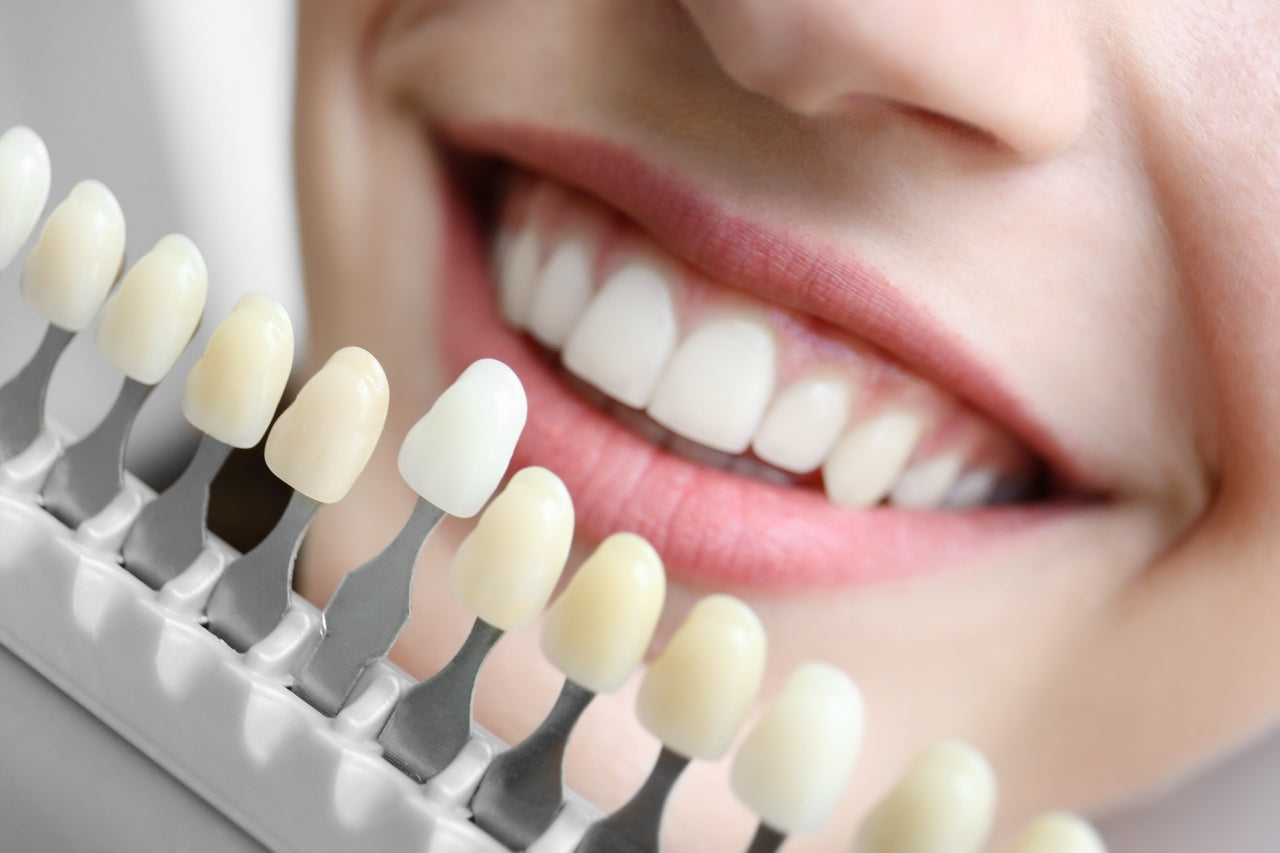Breaking The Stigma: The Truth About Teeth Whitening

Introduction
Many people are self-conscious about the color of their teeth and desire a brighter, whiter smile. However, there is often a stigma surrounding teeth whitening that can prevent people from seeking out this popular cosmetic procedure. In this blog, we will explore the pros and cons of teeth whitening and answer common questions about its safety and effectiveness.
Is There A Downside To Whitening Your Teeth?
One of the most common concerns people have about teeth whitening is that it can cause damage to teeth. However, when performed properly, teeth whitening is a safe and effective way to improve the appearance of your teeth. The most common side effects are temporary tooth sensitivity and gum irritation, but these can be minimized with proper preparation and aftercare. Additionally, teeth whitening should only be performed by a qualified dental professional to ensure the best possible results and avoid any potential negative effects.
Is It Worth Getting Your Teeth Whitened?
The decision to get your teeth whitened is a personal one and depends on your individual needs and preferences. While teeth whitening can be costly, it can also provide a significant boost to your confidence and self-esteem. Teeth whitening can also be a convenient way to achieve a brighter smile, as both professional treatments and at-home kits are widely available. However, it's important to weigh the potential risks and drawbacks before deciding whether to undergo teeth whitening.
Keep reading and then make the best decision for your personal lifestyle and oral care.
Do Teeth Whitening Treatments Cause Damage To Your Teeth?
Teeth whitening works by removing surface stains and discoloration from the teeth, but it does not cause permanent damage to the enamel or structure of the teeth. However, if teeth whitening is performed too often or with too high of a concentration of bleaching agent, it can cause temporary sensitivity and discomfort.
To minimize the risk of negative effects, it's important to follow the instructions provided by your dental professional and avoid the overuse of at-home whitening products.
What Are The Pros And Cons Of Teeth Whitening?
There are several benefits to teeth whitening, including improved confidence, a brighter smile, and a more youthful appearance. However, there are also some potential drawbacks to consider, such as cost, time commitment, and sensitivity. It's important to weigh these factors carefully before deciding whether teeth whitening is right for you.
How Do People Get Their Teeth So White?
There are several methods for whitening teeth, including professional treatments and at-home kits. Professional teeth whitening involves applying a bleaching agent to the teeth and using a special light or heat to activate the whitening process. This can take up to one hour or more, sitting in a dental office.
Many patients report tooth sensitivity while sitting under the lights in their dental office.
Know that if you choose professional, in-office teeth whitening, if you want to keep your teeth whiten indefinitely, you will need to have an at-home touch-up kit to routinely touch up your white teeth from basic stains that accumulate from drinking coffee, tea, eating dark foods/sauces, red wine, and especially tobacco use!
At-home teeth whitening kits use a lower concentration of either Carbamide or Hydrogen Peroxide and are applied using custom trays or strips. In addition to these treatments, there are several lifestyle factors that can help maintain white teeth, such as practicing good oral hygiene, avoiding staining foods and drinks, and using a straw when drinking beverages that can stain teeth.
Bottom line: you always need to touch-up your white teeth. Nothing is guaranteed to keep teeth white indefinitely.
Can Yellow Teeth Easily Become Whiter?
Yes, yellow teeth can be whitened through professional treatments or at-home remedies. Yellow teeth are the easiest color to whiten. Yellow teeth can change more rapidly than gray or black tooth colors.
The most effective method for whitening yellow teeth will depend on the severity of the discoloration and the underlying cause. For example, teeth that are yellow due to aging or genetics may require more extensive treatment than teeth that are yellow due to staining from foods or beverages.
Does Professional Teeth Whitening Really Work?
Professional teeth whitening treatments can be a great option if you want to quickly whiten your teeth. How white your teeth become will depend on several factors, such as the severity of discoloration and the type of treatment used.
In general, most people can achieve their desired level of whiteness with 1 professional treatment however, if you want to indefinitely keep your teeth white you will need to have an at-home teeth whitening option for routine touch-ups.
It's important to consult with your dental professional to determine the appropriate treatment plan for your individual needs and goals.
Conclusion
Teeth whitening is a safe and effective way to improve the appearance of your smile, but it's important to understand the pros and cons before making a decision. With proper preparation and aftercare, you can achieve a whiter, brighter, smile without causing any permanent damage to your teeth.
By breaking the stigma surrounding teeth whitening, you can feel more confident and proud of your smile. Consult with your dental professional to determine the best approach for your individual needs and goals.